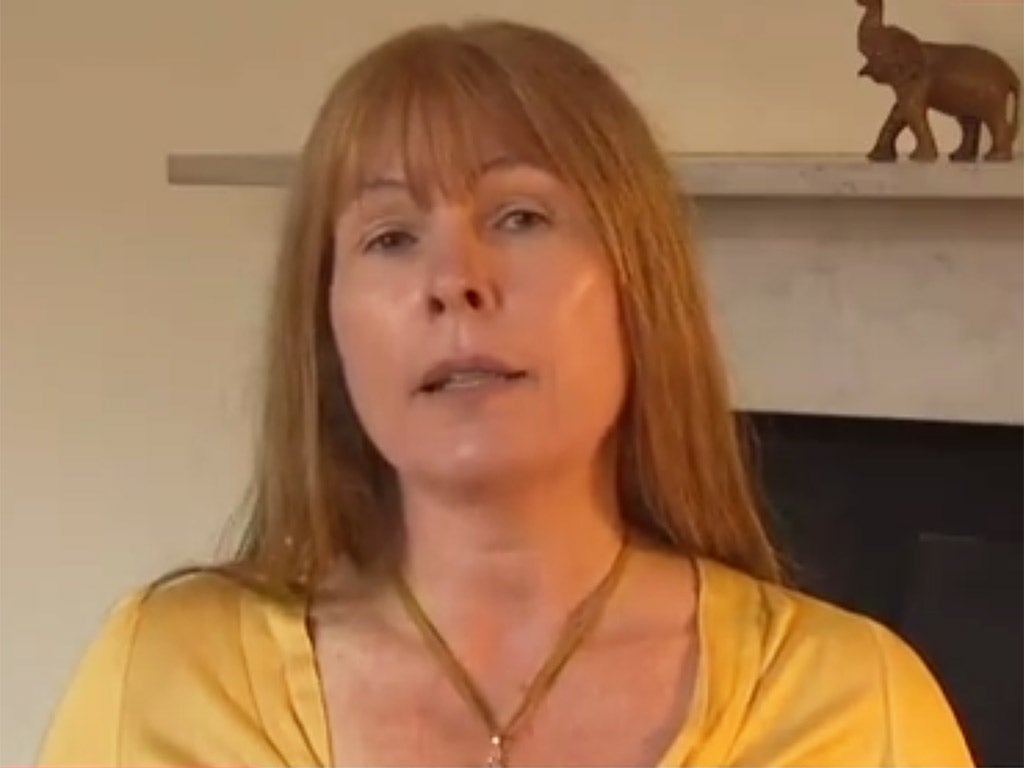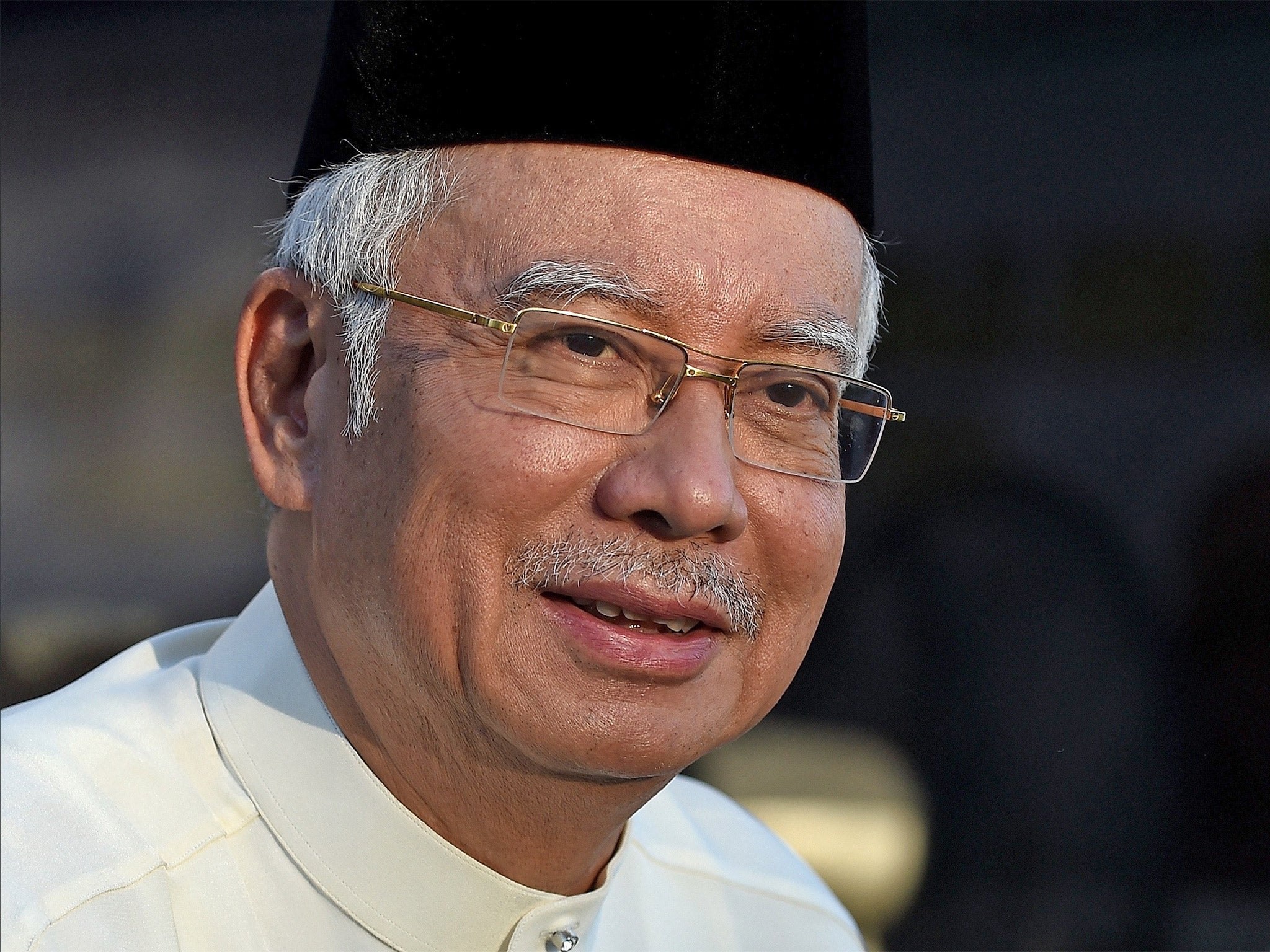Dead people's identities 'stolen' for fake Twitter accounts to smear journalist
Exclusive: Clare Rewcastle Brown was attacked by fake accounts after exposing corruption in Malaysia

Your support helps us to tell the story
From reproductive rights to climate change to Big Tech, The Independent is on the ground when the story is developing. Whether it's investigating the financials of Elon Musk's pro-Trump PAC or producing our latest documentary, 'The A Word', which shines a light on the American women fighting for reproductive rights, we know how important it is to parse out the facts from the messaging.
At such a critical moment in US history, we need reporters on the ground. Your donation allows us to keep sending journalists to speak to both sides of the story.
The Independent is trusted by Americans across the entire political spectrum. And unlike many other quality news outlets, we choose not to lock Americans out of our reporting and analysis with paywalls. We believe quality journalism should be available to everyone, paid for by those who can afford it.
Your support makes all the difference.Fake Twitter accounts created using the identities of recently-deceased people are being used to smear a respected British human rights journalist, in a sophisticated dirty tricks campaign.
The false accounts have been used to besmirch Clare Rewcastle Brown, the sister-in-law of former Prime Minister Gordon Brown, who has exposed corruption in Malaysia.
The dark arts campaign used the “stolen” identities of Philip Goodeve-Docker, a British novice Arctic explorer who died on a charity trek in Greenland in 2013, and Samuel Morehead, a Second World War veteran from Texas who also died in 2013, to create false Twitter accounts, The Independent can reveal.
These accounts were then used to promote links to a Facebook page accusing Ms Rewcastle Brown of fabricating her reporting.
“It’s very distasteful,” Mr Goodeve-Docker’s father Nigel told The Independent, after being alerted to the misuse of his son’s photo. “It is cheap to use the photograph of a dead person who can’t complain.”
Numerous other stolen identities were used for at least 19 Twitter “sock puppet” accounts deployed to direct traffic to a defamatory Facebook page titled “The Real Clare Rewcastle Brown”, challenging the award-winning journalist’s work exposing corruption involving tens of millions of pounds.
How the smear campaign worked
The smear campaign lifted a photograph of Philip Goodeve-Docker, either from his Facebook account or from press articles published in 2013 concerning his tragic death while trying to raise funds for the Queen’s Nursing Institute. The image was used to illustrate a Twitter account set up on 23 October in the name of “Harry Drakeford”, supposedly “working in the banking sector” in Malaysia and Singapore and interested in badminton. “Drakeford” was described as having “money on my mind” and being “keen to invest”. His first tweet, on 24 October, was a link to an “Oh so funny clip” of Clare Rewcastle Brown.
The picture of Mr Goodeve-Docker was later replaced with that of an older man.
The revelation will increase fears that social media websites like Facebook and Twitter are allowing dirty PR campaigns to be conducted with impunity behind the cloak of anonymity. Former security service employees working at the extreme margins of the PR industry are suspected of carrying out highly-funded smears on behalf of powerful interests.
The identities of those behind the campaign against Ms Rewcastle Brown have not been established. But the journalist said that, despite employing lawyers, she had been unable to get the social media giants to take action on her complaints. “I am left appalled at what effect this treatment might have on a vulnerable, perhaps young person who is being subjected to any form of subtle or systematic bullying,” she said.
After following Facebook’s complaints procedure, the journalist received a computer-generated response. “Thanks for letting us know about the Page you reported for harassment. As of now, it hasn’t been removed because we found that it doesn’t go against the Facebook Community Standards.”

She warned that social media websites were “now being targeted as key instruments for professional dirty PR campaigns like the one funded against me”.
Ms Rewcastle Brown, who is London-based but edits the Malaysia-focused blog Sarawak Report, was made the subject of an arrest warrant in Malaysia and accused of “activity detrimental to parliamentary democracy” after publishing documents detailing how nearly $700m from a state fund was paid into the personal bank accounts of Prime Minister Najib Razak. Officials in Kuala Lumpur have said the money came from an unnamed Arab donor. In the summer, Ms Rewcastle Brown was given police protection after being followed and photographed in London’s Hyde Park.
A photograph of the late Mr Goodeve-Docker, identical to one published at the time of his inquest, was used to illustrate a Twitter account set up in the name of “Harry Drakeford”, a man supposedly “working in the banking sector” in Malaysia and Singapore and interested in badminton. His first tweet was about Rewcastle Brown. The picture of Mr Goodeve-Docker was later replaced.

The late Mr Morehead was described as “Sam Everett” in his fake profile. The American’s photograph was later replaced with one of an Australian property consultant, Kelvin Fang.
Among the other “stolen” identities used to create a wave of false Twitter accounts on 23 October included that of Ashraf Rossli, a student whose plight provoked a national outcry when he was mugged during the London riots of 2011. Rossli, who is Malaysian, was restyled on Twitter as “Sam Woo”.
Meanwhile Rosy Everitt, an unsuspecting Brighton travel firm employee, was dubbed “Lilian Woodfull”, a Kuala Lumpur-based flight attendant with nine Twitter followers - and a keen interest in Clare Rewcastle Brown. “It’s pretty disconcerting to know my image is being used to voice opinions that aren’t mine,” Ms Everitt told The Independent. “It goes to show how it easy it is to create fake personas online.”
It’s very distasteful. It is cheap to use the photograph of a dead person who can’t complain
David Begg, general secretary of the Irish Congress of Trades Unions, was renamed “David Beg”, an apparent supporter of the Malaysian palm oil industry. Real-life Greenpeace activist Gizem Akhan was rebranded as environmentalist “Ella Dooley” and positioned as a former supporter of Ms Rewcastle Brown’s Sarawak Report who had come to see the journalist in a different light.
Twitter told The Independent it didn’t comment on individual cases. It responded to Sarawak Report’s complaint with a standard reply. “We reviewed the account and content reported and are unable to take action given that we could not determine a clear violation of the Twitter rules surrounding abusive behavior.”
The Facebook page titled The Real Clare Rewcastle Brown links to a professionally-made animated film, hosted on Google’s YouTube platform, satirising the journalist and voiced by a British-accented actor. “It’s all rubbish but who cares?” the animated figure of Rewcastle Brown says of her reports. “I just point the finger.”
The case has caused concern at senior levels in the PR industry. “The coordinated use of platforms like Facebook and Twitter to smear individuals is unethical and if PR agencies are carrying out such nefarious activities then it is extremely concerning,” said Francis Ingham, Director General of the Public Relations Consultants Association. “This kind of activity directly contravenes the PRCA’s Professional Charter.”
Mark Borkowski, head of a London PR firm, warned that social media provided new opportunities for dirty tricks. “A lot of spies and ex-Army people are going into it,” he said. “There are some despicable crafts being deployed on the outer reaches of PR to disseminate false information and crush reputations. Where there is big money and big interests certain PR energy will flow into that space.”
Libel in the digital age: Is the law working?
Rosalind English, a barrister at London chambers 1, Crown Office Row, has written about problems in taking legal action against Facebook over fake content. She said: “We are stuck with the problem that it’s incumbent on the claimant to prove that the defendant is responsible for publication. This is law designed in the days before the Internet, before publishers could disappear into a confusing maze of offshore companies.”
Ms English wrote on the UK Human Rights Blog that “suing Facebook is no easy matter”, highlighting a recent High Court case in which a woman failed in an action against the social media giant after an “imposter” created a fake and allegedly defamatory profile of her on the site.
The barrister told The Independent that times had changed since the 1937 “golf club notice board” case of Byrne versus Deane, which held the club responsible for defamatory messages posted on its board. “The libel law is designed for people being able to point the finger at specific entities or individuals which may be regarded as responsible for the publication,” she said. “[In social media cases] the claimant has a huge burden not only to find the right company but to establish that the publication has been actively facilitated by the [Internet Service Provider].”
Join our commenting forum
Join thought-provoking conversations, follow other Independent readers and see their replies
Comments